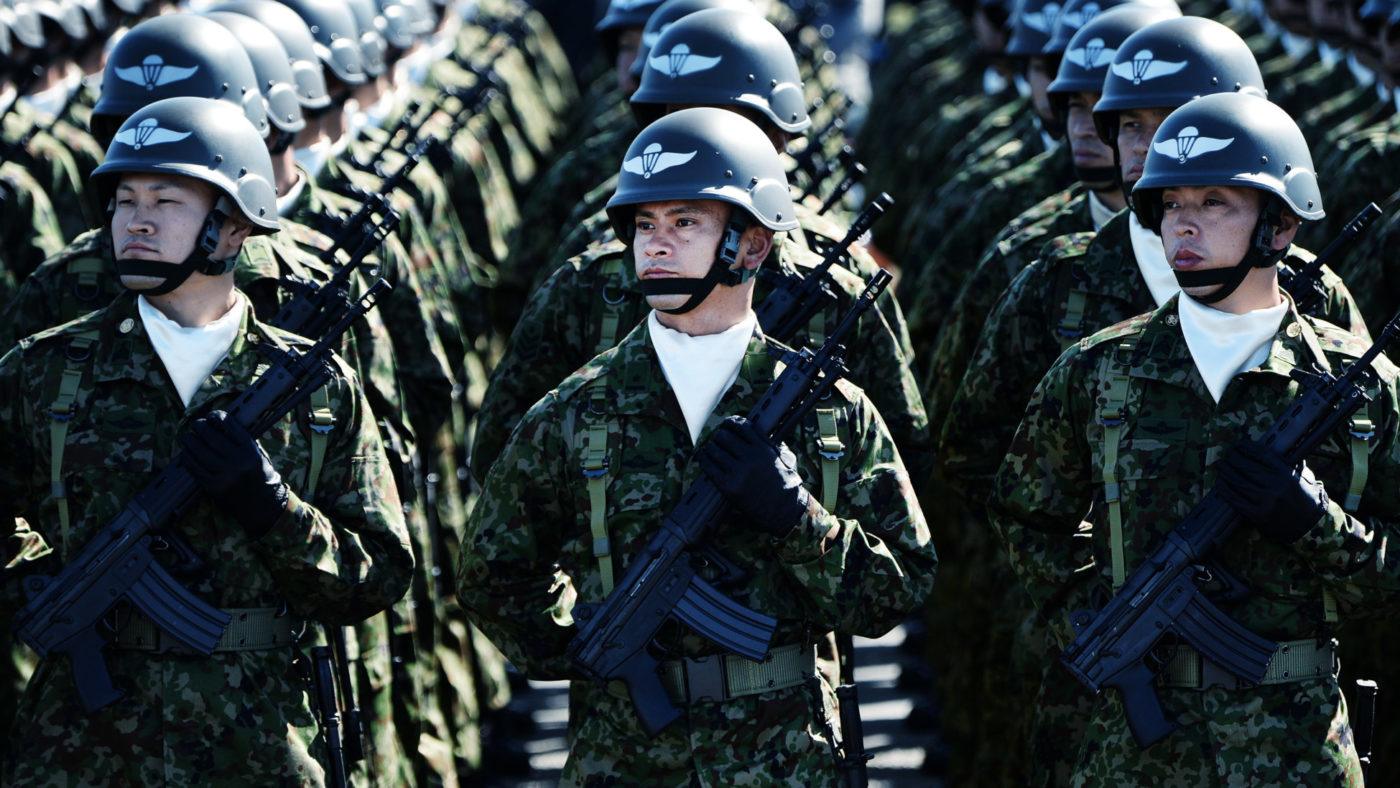East Asia has been a paragon of peace for decades, but both North Korea and China seem determined to remind the world – and especially their neighbour Japan – that this mustn’t be taken for granted.
On Monday morning, from a base just near its border with China, North Korea launched a test of four ballistic missiles into the Sea of Japan, three of which landed in Japanese waters. And last week, Japan made its largest scrambling of fighter jets in modern times to intercept and shadow a fleet of 13 Chinese bombers, fighters and reconnaissance planes that flew through the straits nearby the southern Japanese island of Okinawa.
These shows of North Korean and Chinese force make Japan’s government happy that Donald Trump is proposing such a big rise in US defence spending. Sceptical that China will really lean hard on its highly dependent North Korean ally, Japan is also quietly pleased that President Trump has used confrontational language about China over both Taiwan and trade.
Accordingly, Prime Minister Shinzo Abe’s efforts to curry favour with President Trump have made Theresa May’s look positively restrained. Yet Japan should be careful what it wishes for. It has much to lose from a US-China bust-up.
Not that Japan is wrong to be worried about China’s long-term military build-up in East Asia. Pursuing its goal of strategic dominance in what it considers its own waters in the South China Sea and East China Sea, China’s tactics have consisted of steadily putting new “facts on the ground” to establish its de facto control.
Around islands it disputes with Japan, known as the Senkakus in Japanese and Diaoyutai in Chinese, it has made more and more incursions by military and civilian ships and submarines through Japanese waters, daring the Japanese to object.
In the South China Sea, where islands and reefs are disputed among many littoral states, including the Philippines, Malaysia, Vietnam and Indonesia, China has been building airstrips and other military facilities on shallow reefs. Tensions in the region are high, but there is much head-scratching about what to do about it.
Enter Donald Trump. His administration has yet to unveil anything like an Asian strategy, but his deliberately boat-rocking phone call with the Taiwanese president in December, then remarks by his Secretary of State, Rex Tillerson, indicating that Chinese territorial expansionism would not go “unchallenged”, and now the proposed spike in defence spending all look designed to put China on warning.
In that context, boosting defence spending, and especially technological research and development, makes good sense. With China, the old Cold War measures of big nuclear arsenals, intercontinental missiles and a huge navy cut little ice. At least over the next few decades, China will be challenging for regional dominance, not globally in the manner of the old Soviet Union.
Its key asset for that purpose are the submarines which can sink US aircraft carriers and to detect US submarines, thus denying the US ready access to the area in time of conflict. So investing in expanding the technological gap between US and Chinese forces could be the most fruitful way to sow doubt in the Chinese military’s mind about its ability to keep the US at bay.
That is a sound long-term strategy, which no doubt the US Defence Secretary, General Mattis, and the new National Security Advisor, General HR McMaster, will be arguing for. The trouble is that the Trump administration also has a more short-term war strategy with China in its cross-hairs: a trade war.
That sort of war worries Japan much more than the military sort. The noises coming from the (still not fully confirmed) Trump trade team are of imposing high tariffs or other border taxes and controls on Chinese exports to the US.; it is also seeking ways round, or plain ignoring, any WTO rules or dispute settlement procedures that might stand in the way.
You might think that Japan should welcome such tactics against its regional rival. Indeed, many in Tokyo think China would only be getting its just deserts. But on further reflection, they are realising how Japan could easily get hurt in the crossfire.
It stands to get hurt in three ways. First, China is its biggest trading partner, so if Chinese demand slumps during a trade war, Japan’s own exports stand also to suffer.
Second, the country’s whole stance, in both security policy and trade, has been based on the defence of international law and treaty-based obligations: if Trump destroys the WTO, he will destroy Japan’s stance too, making it easier for China to ignore other forms of international law, such as over Japanese sovereignty in the Senkakus.
Third, it is not at all clear that Japan itself would be exempt from a Trump trade war, given that like China it runs a big bilateral trade surplus with the US.
For that reason, Prime Minister Abe needs to realise that, like Theresa May, it is not in his country’s interests simply to become chums with President Trump, let alone his poodle. The task that both share is one of domesticating Trump and dissuading him from pursuing policies that could cause huge collateral damage both for Japan and the UK.


